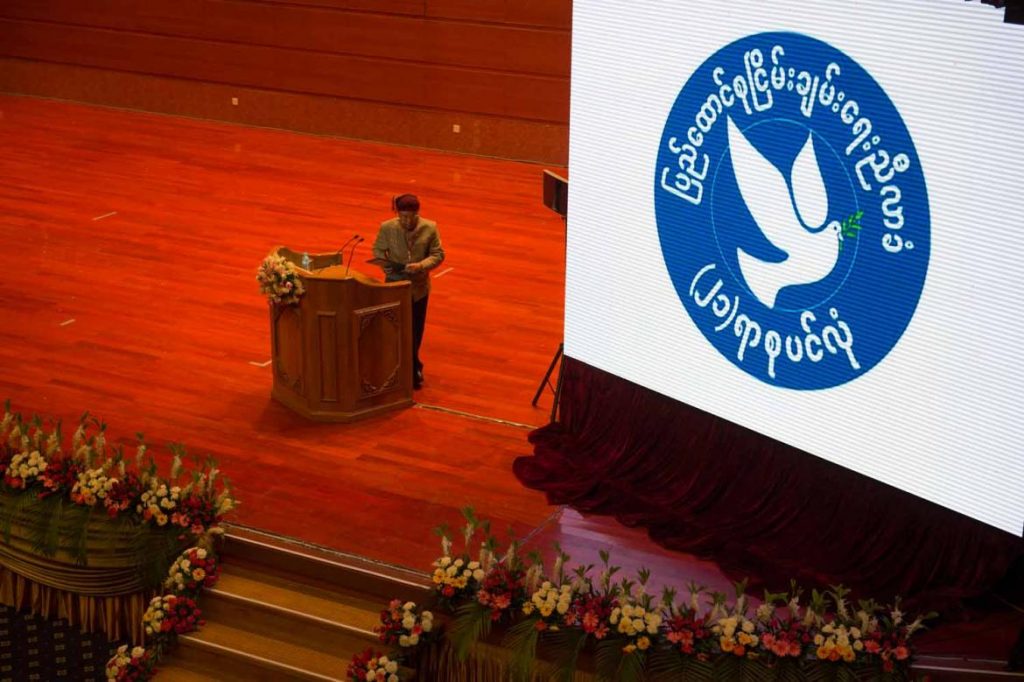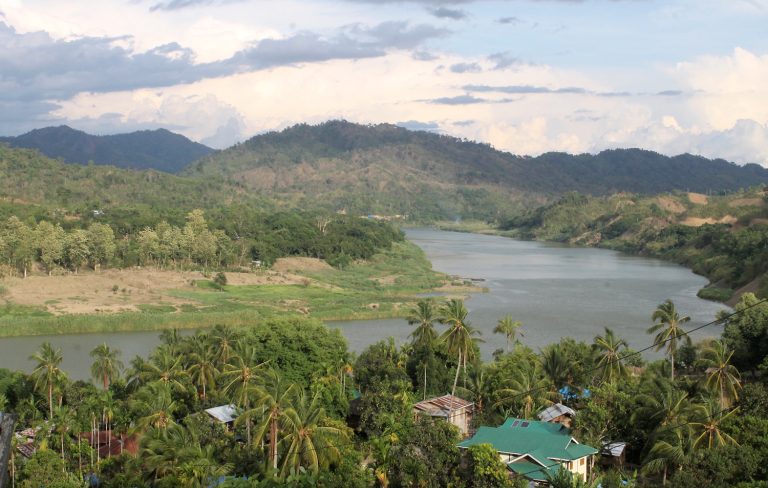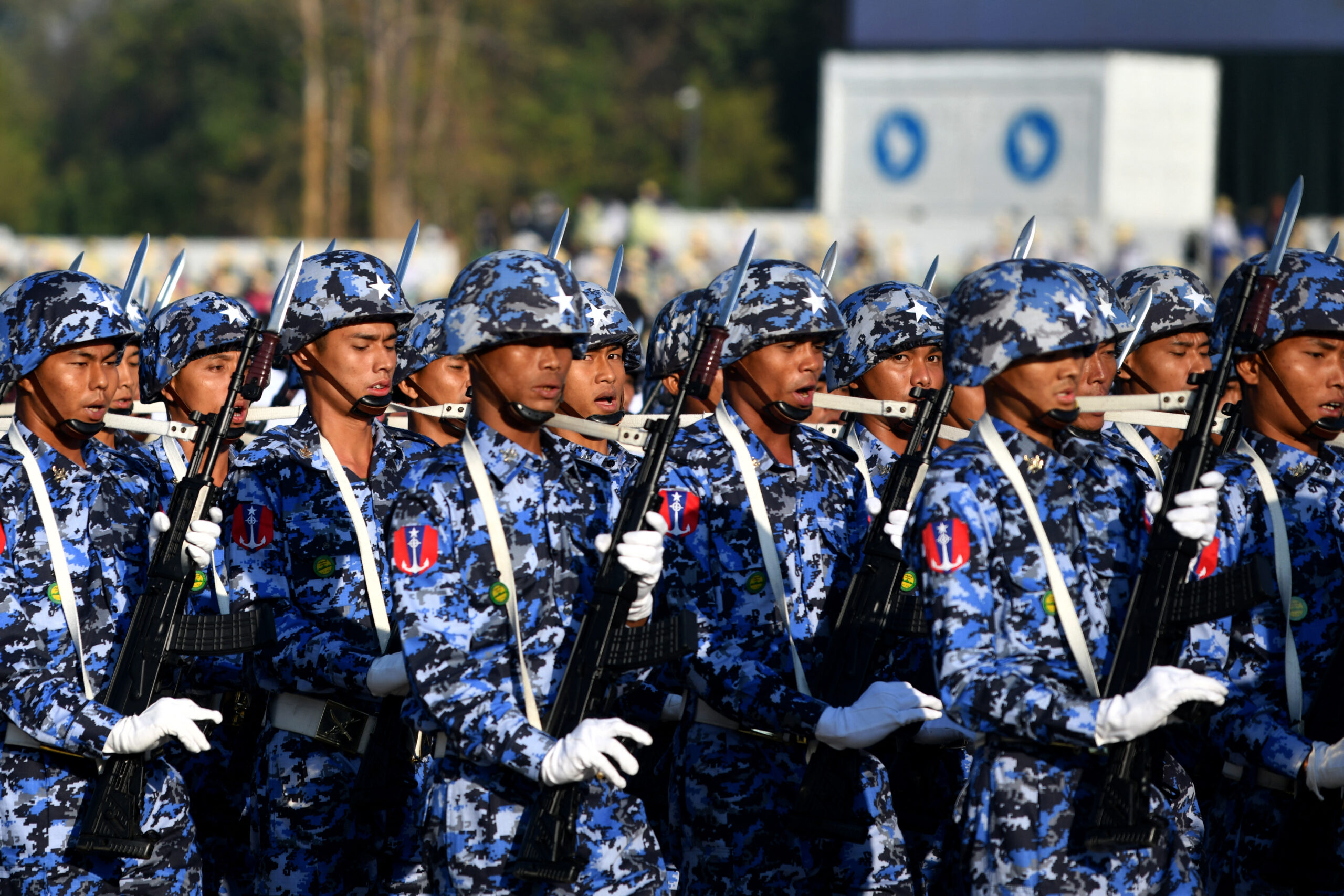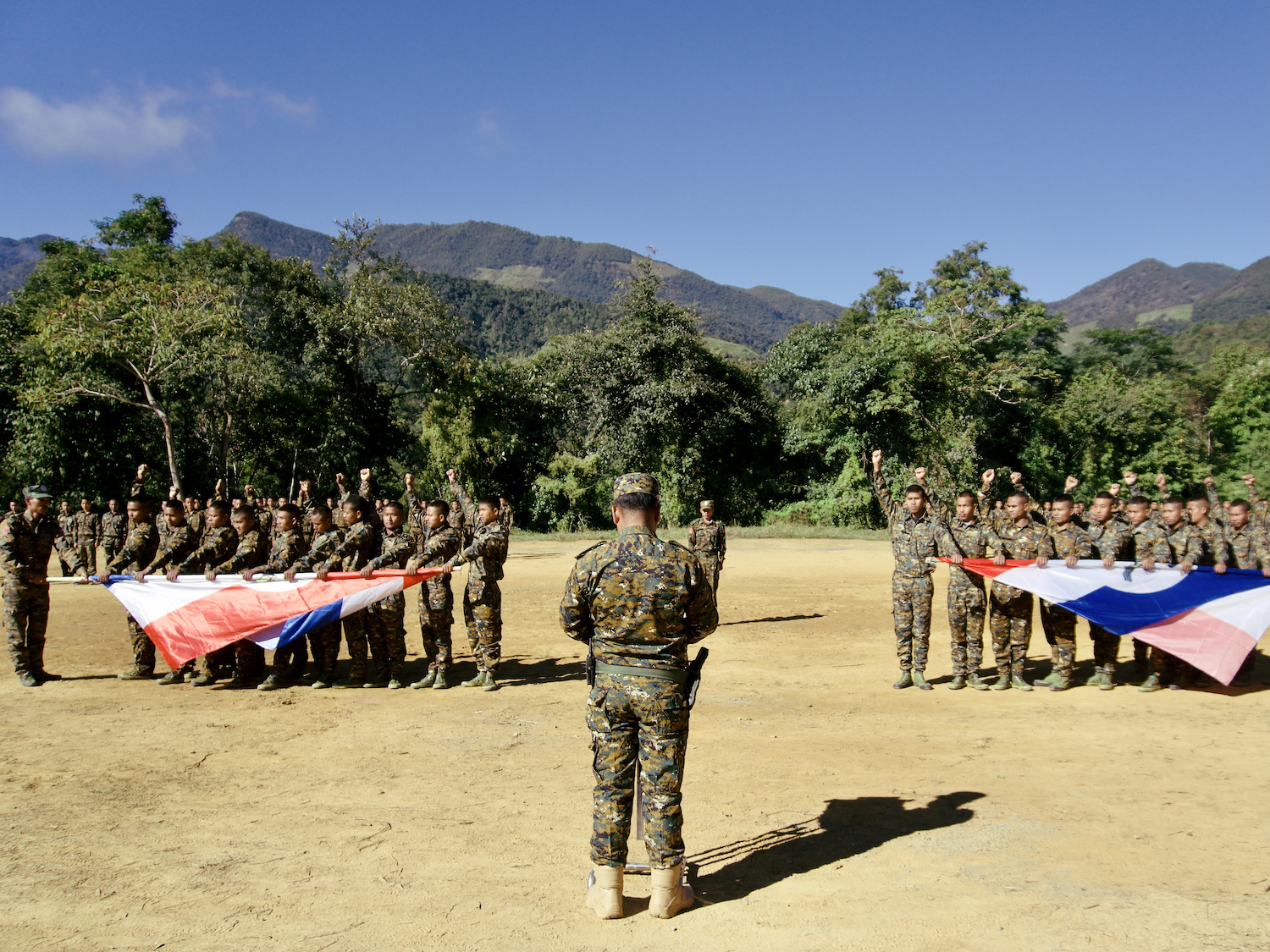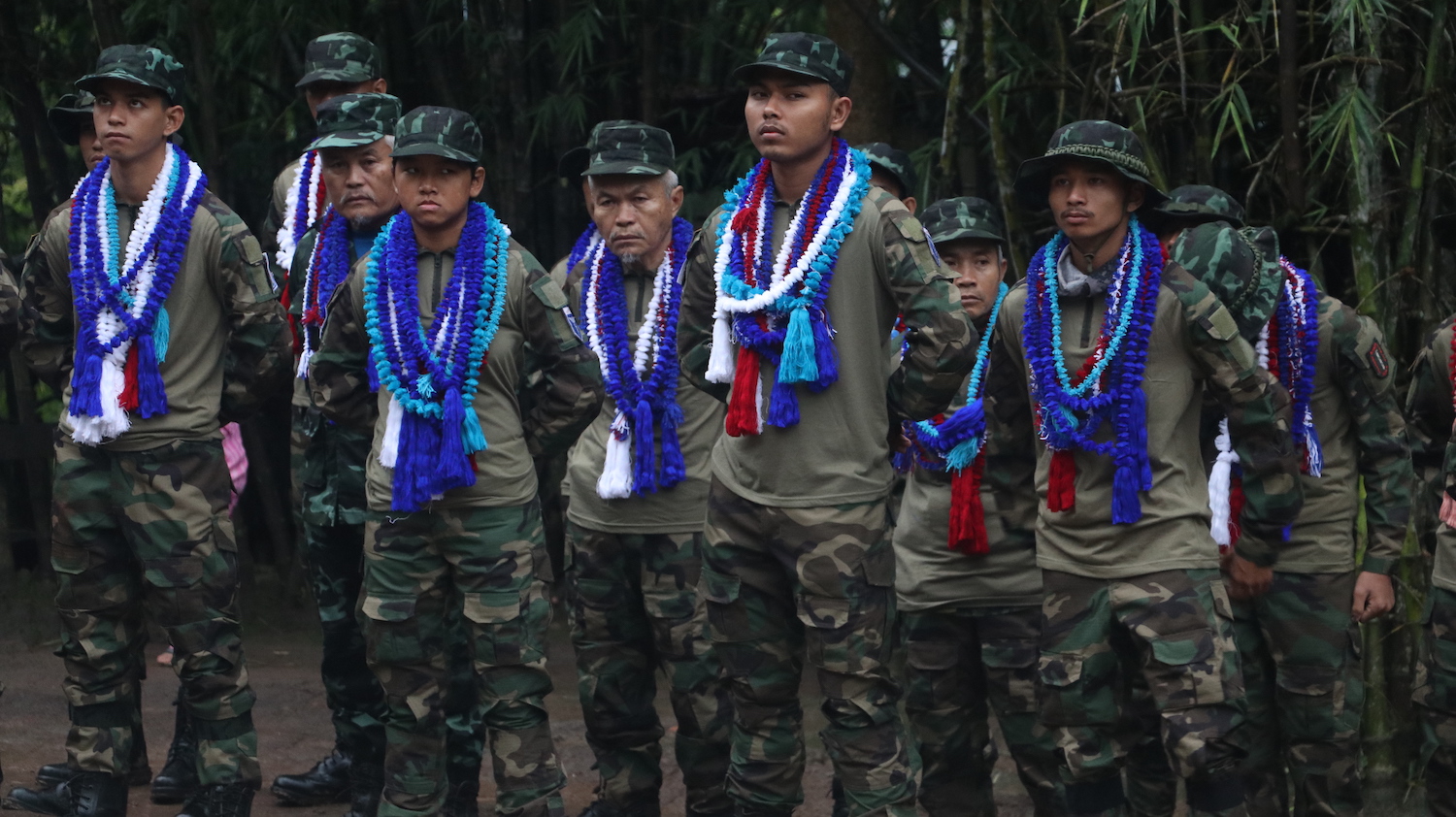By NYAN HLAING LYNN | FRONTIER
NAY PYI TAW — The government is likely to delay this month’s peace conference in order give it more time to secure the participation of ceasefire non-signatories and also hold dialogue meetings in ceasefire areas, a spokesman has confirmed.
The 21st Century Panglong Union Peace Conference is scheduled to start on February 28 but so far only eight armed groups – those that signed the nationwide ceasefire agreement in 2015 – are expected to attend, leaving around a dozen others outside the formal political dialogue process.
The military has refused to allow non-signatories to participate in the Panglong meetings, and the non-signatories say they will not attend as observers.
President’s Office spokesman U Zaw Htay told Frontier the government was still discussing whether to push back the conference.
Support more independent journalism like this. Sign up to be a Frontier member.
“We can’t say exactly whether it will be delayed. We are negotiating with the ethnic armed groups,” he said.
In the meantime, the government will continue to prepare for a February 28 opening, he said. The date was set at the Union Peace Dialogue Joint Committee (UPDJC) meeting on February 6. The government held the first Panglong meeting in August 2016 and pledge to hold further peace conferences every six months.
Speaking at a ceremony in Panglong, Shan State, to mark the anniversary of the signing of the Panglong Agreement in 1947, State Counsellor Daw Aung San Suu Kyi urged all ethnic armed groups to sign the nationwide ceasefire and participate in the Panglong conference this month “for the sake of the people”.
“Taking risks and making sacrifices require the highest levels of courage,” she said.
Another factor the government will consider when making a decision is the scheduling of national-level political dialogue meetings, which are being held in areas where nationwide ceasefire signatories are active.
The results of the dialogue meetings, which focus on political, economic, social, land use and environmental issues, are supposed to inform discussions and decisions made by participants at the Panglong conferences.
Meetings were held in Kayin State and Tanintharyi Region last month, with further talks due to be held in Shan State and Bago Region this month.
At the February 6 UPDJC meeting, a decision was made to delay talks planned for Chin State, but the government has relented under pressure from the Chin National Front, a ceasefire signatory.
As Frontier has previously reported, the CNF threatened to boycott the Panglong meeting if the political dialogue was delayed.
Zaw Htay said a meeting would now be held in Thantlang Township on February 23 and 24.
Meanwhile, a two-day civil society forum at Myanmar International Convention Center-2 in Nay Pyi Taw will end on February 25.


